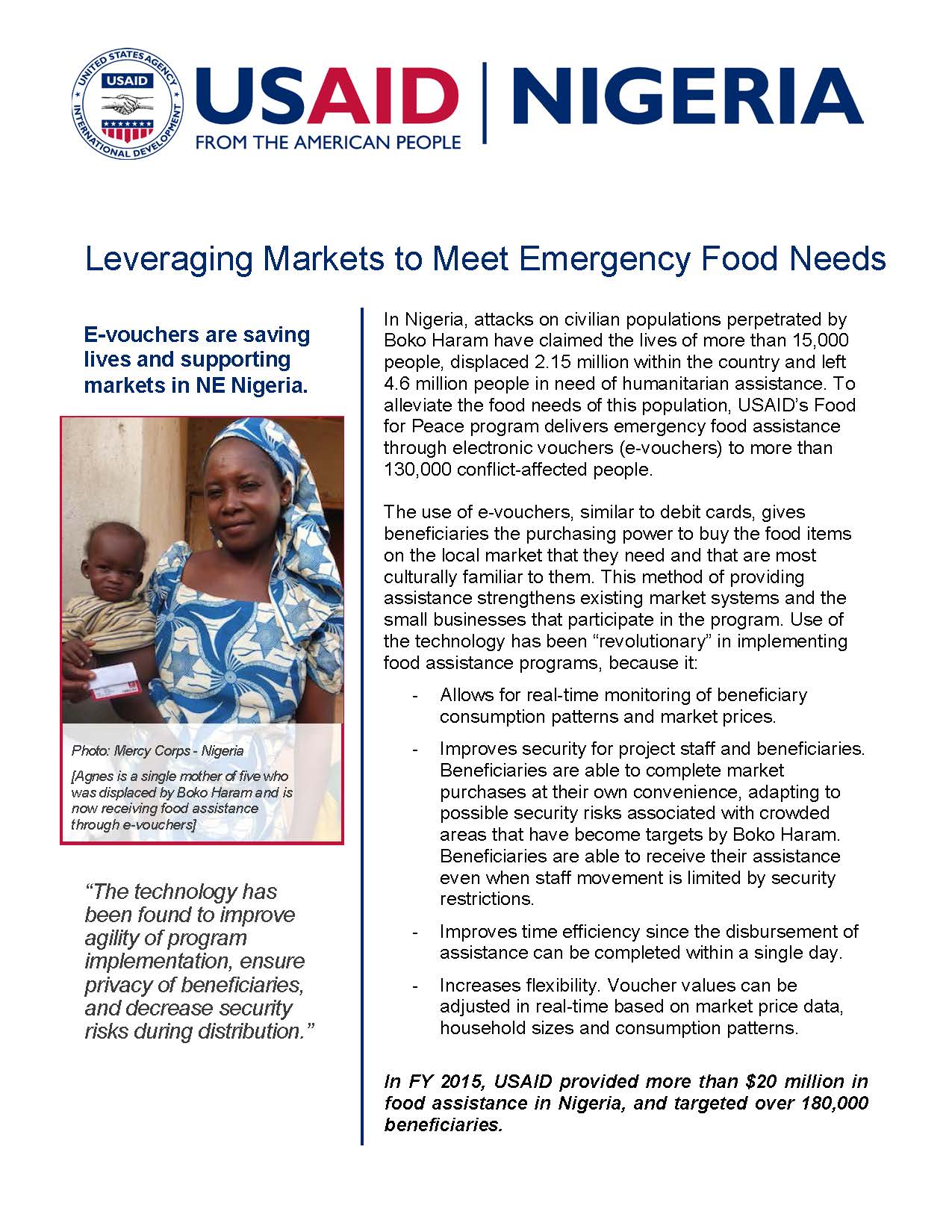E-vouchers are saving lives and supporting markets in NE Nigeria.
“The technology has been found to improve agility of program implementation, ensure privacy of beneficiaries, and decrease security risks during distribution.”
In Nigeria, attacks on civilian populations perpetrated by Boko Haram have claimed the lives of more than 15,000 people, displaced 2.15 million within the country and left 4.6 million people in need of humanitarian assistance. To alleviate the food needs of this population, USAID’s Food for Peace program delivers emergency food assistance through electronic vouchers (e-vouchers) to more than 130,000 conflict-affected people.
The use of e-vouchers, similar to debit cards, gives beneficiaries the purchasing power to buy the food items on the local market that they need and that are most culturally familiar to them. This method of providing assistance strengthens existing market systems and the small businesses that participate in the program. Use of the technology has been “revolutionary” in implementing food assistance programs, because it:
- Allows for real-time monitoring of beneficiary consumption patterns and market prices.
- Improves security for project staff and beneficiaries. Beneficiaries are able to complete market purchases at their own convenience, adapting to possible security risks associated with crowded areas that have become targets by Boko Haram. Beneficiaries are able to receive their assistance even when staff movement is limited by security restrictions.
- Improves time efficiency since the disbursement of assistance can be completed within a single day.
- Increases flexibility. Voucher values can be adjusted in real-time based on market price data, household sizes and consumption patterns.
In FY 2015, USAID provided more than $20 million in food assistance in Nigeria, and targeted over 180,000 beneficiaries.








Comment
Make a general inquiry or suggest an improvement.